Why Israel launched an attack on West Bank’s Jenin
Why Israel launched an attack on West Bank’s Jenin
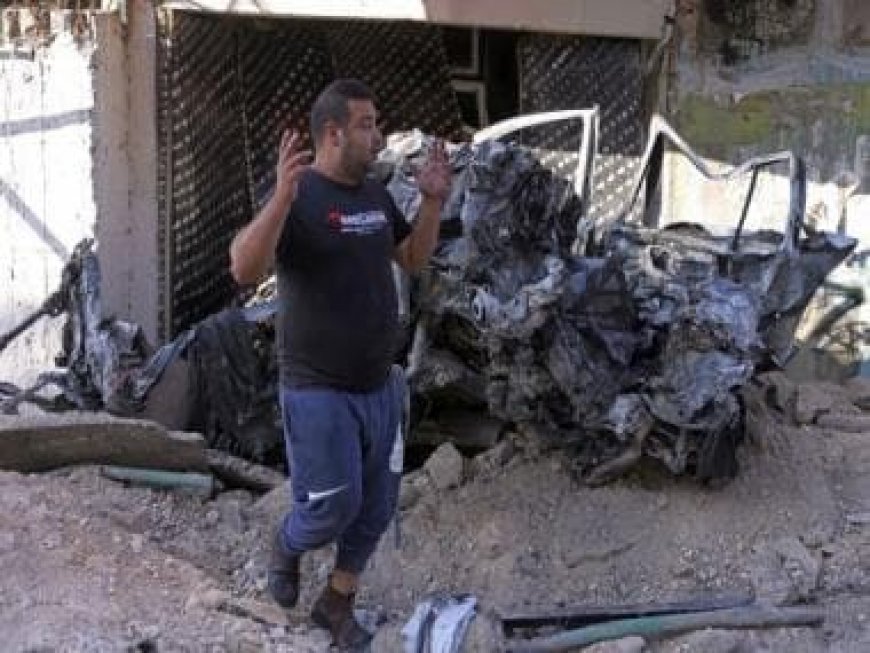
“What the Israeli occupation government is doing in the city of Jenin and its camp is a new war crime against our defenceless people.”
Nabil Abu Rudeineh, spokesperson for the Palestinian presidency, said just hours after Israel launched a major aerial and ground offensive into the occupied West Bank city of Jenin, its biggest military operation in the Palestinian territory since 2002. The attack on Monday, which came around 1 am (local time), has led to the death of nine Palestinians and another 100 injured. Also, an Israeli soldier was “slightly injured” by shrapnel from a grenade used during the incursion, said officials.
Monday’s attack marks a significant escalation in violence and follows a raid in Jenin two weeks ago that killed seven Palestinians and that was itself one of the largest conducted in years.
Let’s take a closer look at Israel’s targeting of Jenin.
What we know of the attack?
Before we look at why the attacks took place, here’s a rundown of what happened on Monday. Around 1 am (local time), Israel’s military launched its most intense attack on Jenin, in the occupied West Bank.
Several missiles were fired by drones and a brigade of Israeli troops – around 1,000 and 2,000 soldiers – backed by armoured bulldozers and snipers on rooftops entered the city and its refugee camp, encountering fire from Palestinians.
Videos obtained by CNN from Jenin showed Israeli bulldozers tearing up streets to disarm potential explosives, as well as Israeli tanks outside the city limits. Residents were also quoted as telling CNN that there were explosions and heavy gunfire in the area.
Mohammed Jarrar, Jenin’s deputy mayor, also said that homes and infrastructure had been destroyed, cutting off electricity and water in the area. Duha Turkman, a 16-year-old from Jenin recounting the horror, said to CNN: “We ran out with people from the camp, so many children walked with their parents while terrified and crying, they didn’t understand what was happening to them and why. Many were missing; families were looking for members that they couldn’t get in contact with due to the electricity cut.”
After the first drone strike, Israeli forces then completely surrounded the refugee camp using dozens of armoured vehicles, leading to gunfights between the Israeli forces and Palestinian resistance fighters.
Of those killed in the attacks were five teenagers, said the Palestinian Ministry of Health.
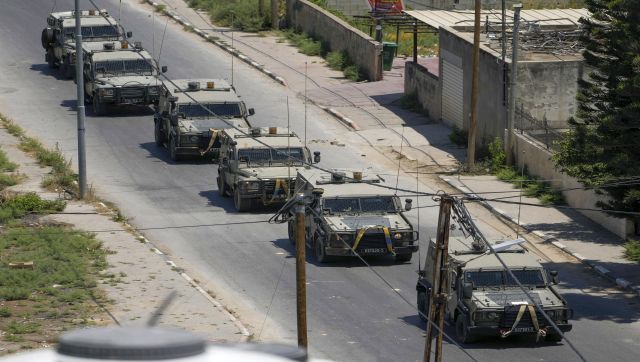
Who was Israel targeting?
Monday’s attack on Jenin, according to Israel, was an “extensive counter-terrorism effort”. The military said a drone attack struck a joint operations centre used by militants of a group known as the Jenin Brigade in the refugee camp, and that Israeli forces also targeted a facility for weapons production and explosive device storage.
A spokesperson for the Israeli military, Lt Col Richard Hecht, was quoted as telling the New York Times that the goal of the Israeli operation was “to break the safe-haven mindset” of the refugee camp. At least 19 people suspected of attacks on Israelis had found shelter there in recent months, according to the military.
Hecht said the airstrikes were intended to “minimise friction” on the ground and the risk to Israeli troops, adding that the assault would go on for “as long as needed.”
The chief spokesperson for the Israeli military, Rear Admiral Daniel Hagari, also echoed similar statements, saying that as Israel could ascertain, those killed were all combatants, attributing that to what he described as the precision of the airstrikes and the minimal payloads of the missiles used. However, he did acknowledge that civilians were among the injured, but insisted the operation only meant to target “terrorists.”
“It’s not an invasion on Jenin, it’s not against the Palestinian Authority. It’s not against innocent, innocent Palestinians. It’s against terrorists in this camp,” he said, as per a CNN report.
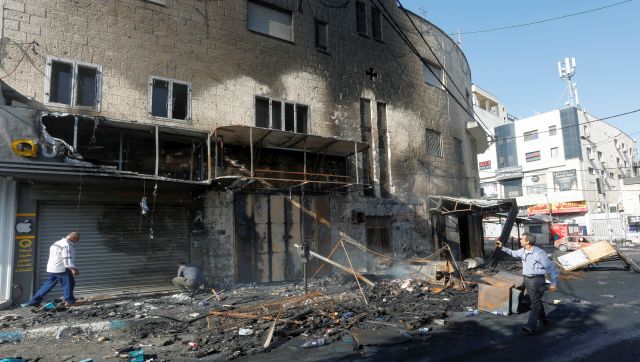
How other countries reacted?
While Israel defended its actions in Jenin – Prime Minister Benjamin Netanyahu praised its forces for entering what he called the “nest of terrorists” – Palestinian leaders called it a war crime and called on the international community to “break its shameful silence and take serious action”.
The Palestinian foreign ministry described the Jenin operation as a “barbaric aggression”, saying it was part of Israel’s official policy “of using military force in dealing with the defenceless Palestinian people as an alternative to political solutions to the conflict”.
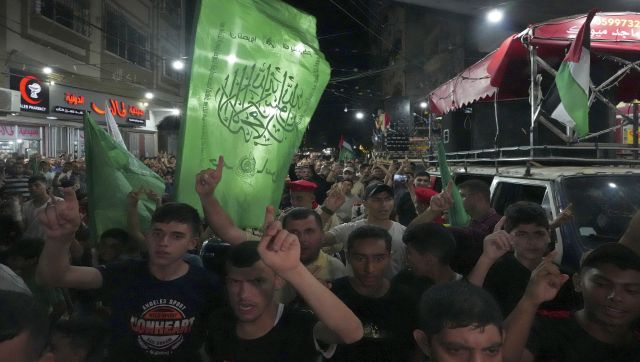
The United States said it defended Israel’s right to security and was monitoring the situation on the West Bank closely. “We have seen the reports and are monitoring the situation closely,” a White House spokesperson said. “We support Israel’s security and right to defend its people against Hamas, Palestinian Islamic Jihad and other terrorist groups.”
Britain asked that Israel exercise restraint. A spokesperson for Prime Minister Rishi Sunak said, “While we support Israel’s right to self defence, the protection of civilians must be prioritised. In any military operation, we would urge the Israel Defence Forces to demonstrate restraint in its operations and for all parties to avoid further escalation in the West Bank and Gaza.”
Jordan, a neighbour to Israel, said the operation was “a clear violation of international humanitarian law”. Iran and Egypt also backed Palestine, with Tehran further describing it as a “reckless crime and a prominent measure of state terrorism”, stressing that “the Zionist entity will be defeated this time as well”.
But why Jenin?
Monday’s attacks are reminiscent of the violence that rocked the city during the second intifada, or Palestinian uprising, of the 2000s. The camp is the epicentre of the new wave of violence engulfing Israel and the Palestinian territories. According to the IDF, 50 shooting attacks against Israelis in the last two years originated in Jenin and 19 suspects have taken shelter there.
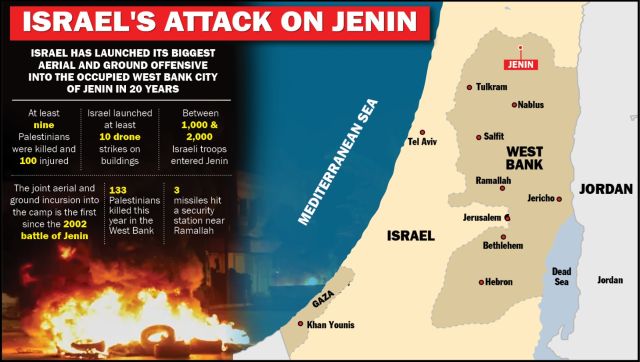
Jenin, located in the northern West Bank, is a poverty-stricken city and home to one of the largest camps in the West Bank set up for Palestinians expelled from their homes after the creation of Israel.
According to a report in The Guardian, Jenin has long been a centre of resistance to the 55-year-old Israeli occupation of the Palestinian territories. It is reported that today it has become home to Palestinian fighters, a number of them making up the Jenin Brigades. It is a group that reportedly brings together members from different factions rather than carrying out the agenda of any particular faction.
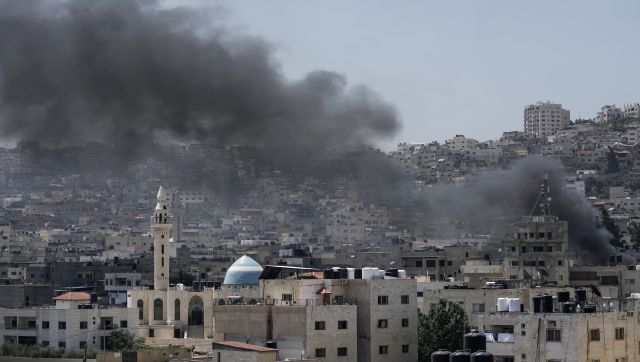
It is because of this that Israel has been increasingly launching raids on Jenin in the past two years. Recently, on 20 June, seven Palestinians died during an Israeli raid in Jenin. It was the first time that the military used an attack helicopter in the West Bank in years. The next day, two Hamas gunmen shot dead four Israelis near the settlement of Eli, 40 km (25 miles) to the south.
In the same week, three Palestinian militants from Jenin killed in a rare Israeli drone strike. Reports have stated that over 133 Palestinians have lost their lives in the West Bank so far, while another 36 have been killed in the Gaza Strip.
According to some analysts, the escalation in the violence is part of Prime Minister Benjamin Netanyahu’s effort to placate far-right ministers in his own government.
Sarah Leah Whitson, executive director of the advocacy and research organisation Democracy for the Arab World Now, told VOX, “The death toll over both in the West Bank and now in Jerusalem is in fact the entirely predictable result of an extremist Israeli government that is propagating violence.”
With inputs from agencies
Read all the Latest News, Trending News, Cricket News, Bollywood News,
India News and Entertainment News here. Follow us on Facebook, Twitter and Instagram.
What's Your Reaction?



























































